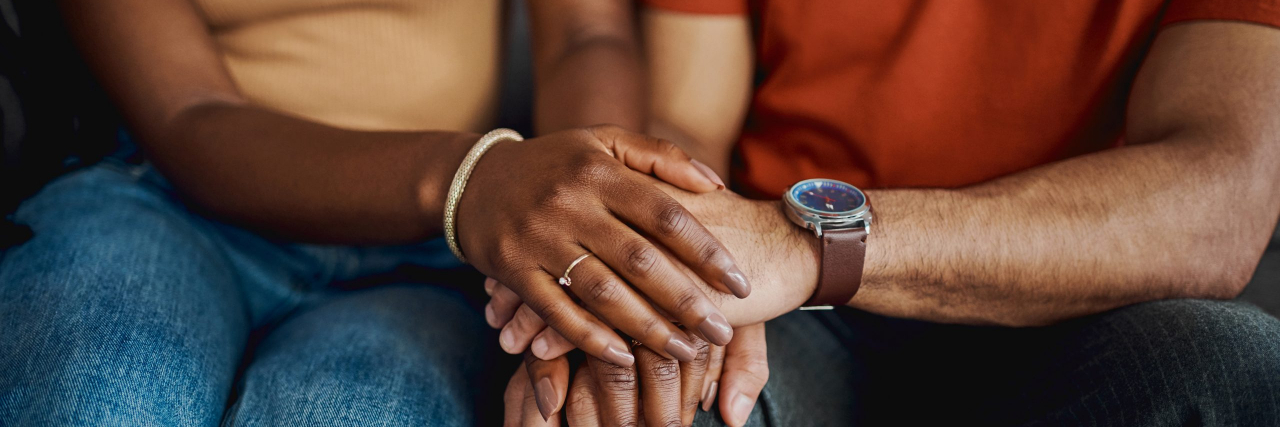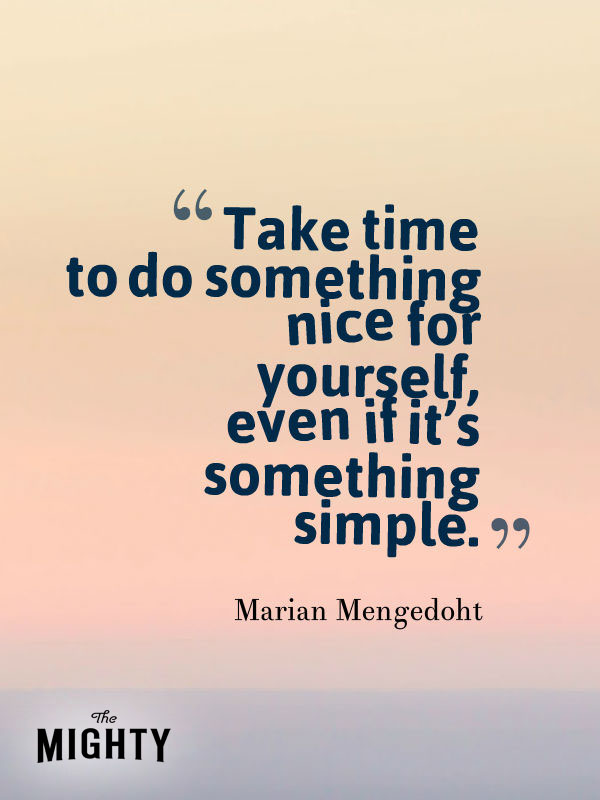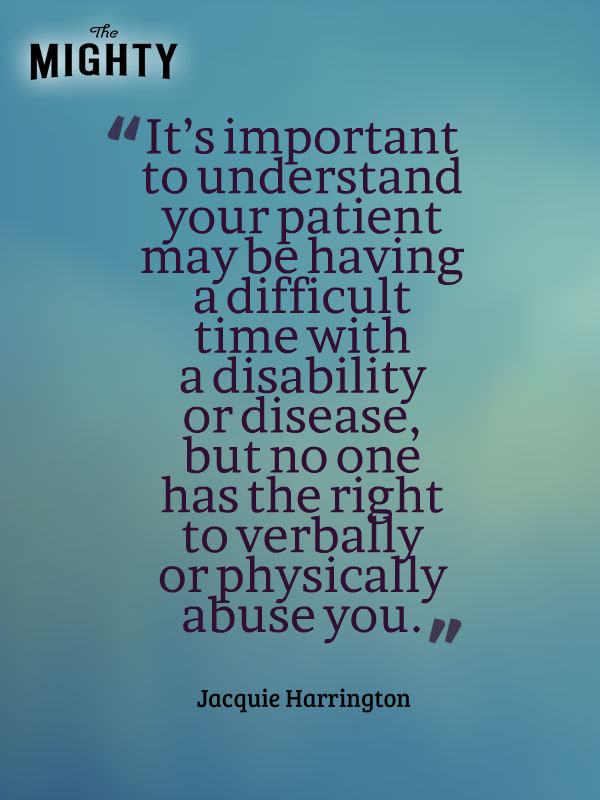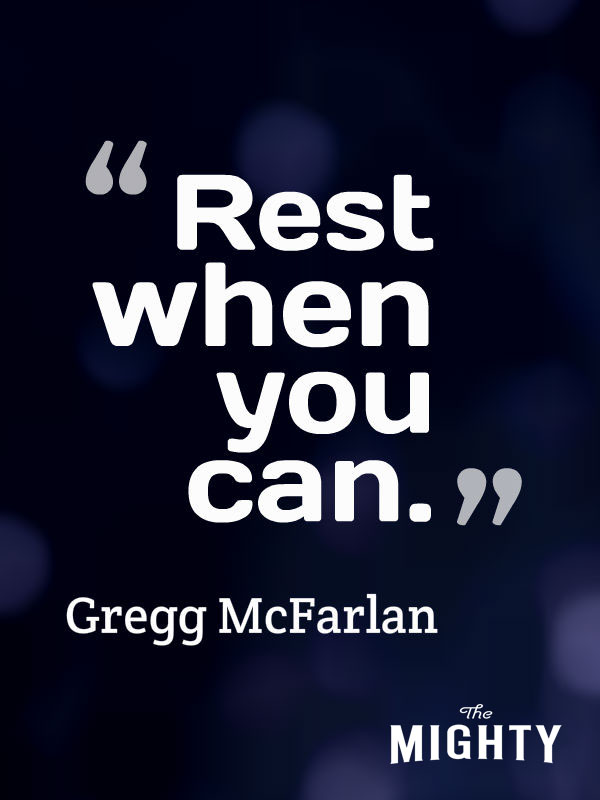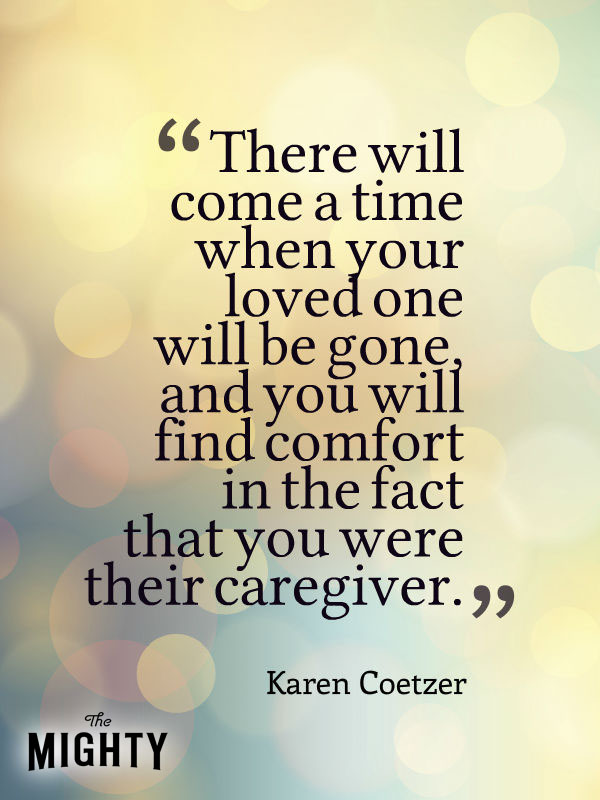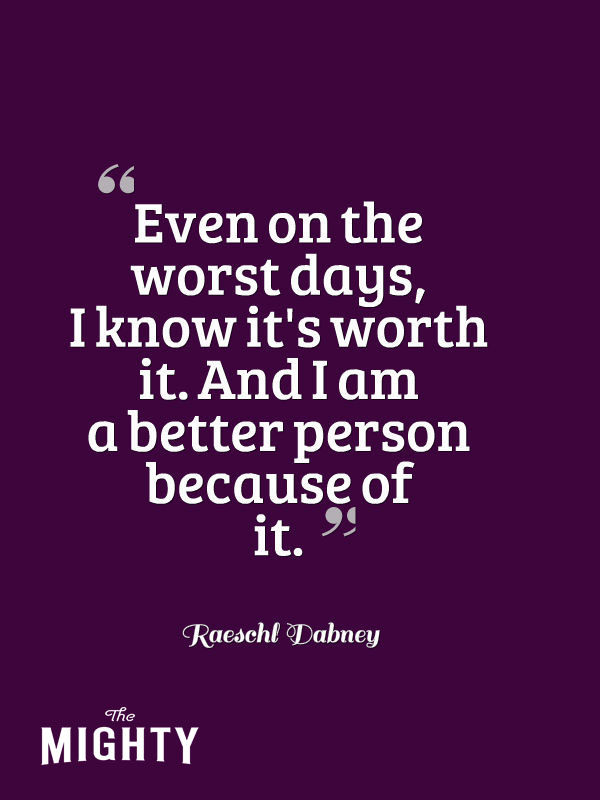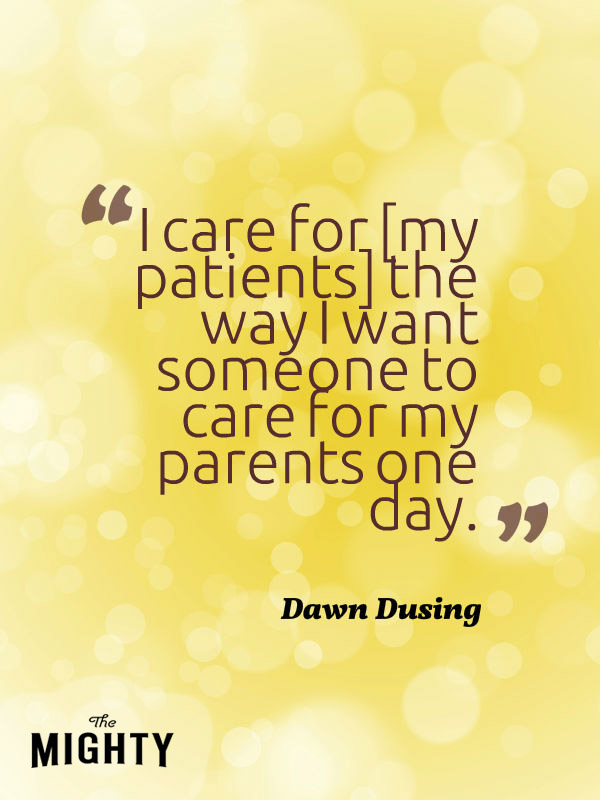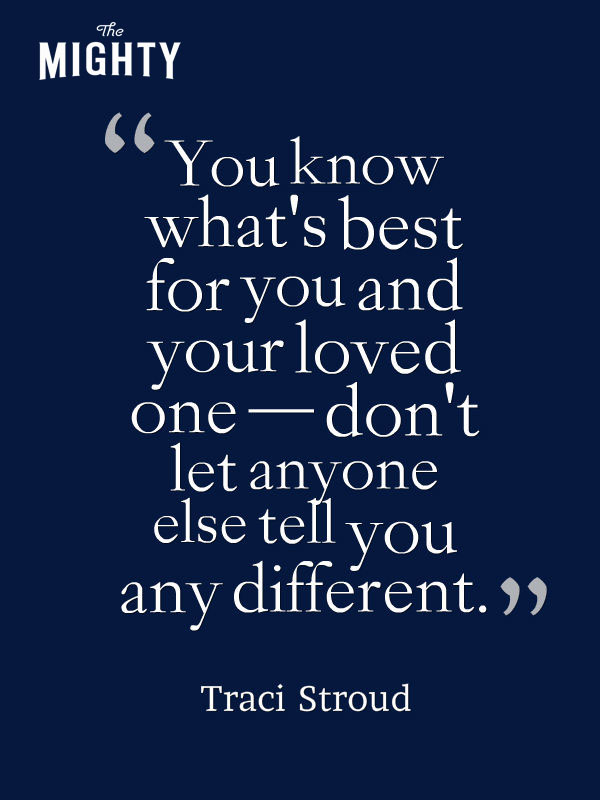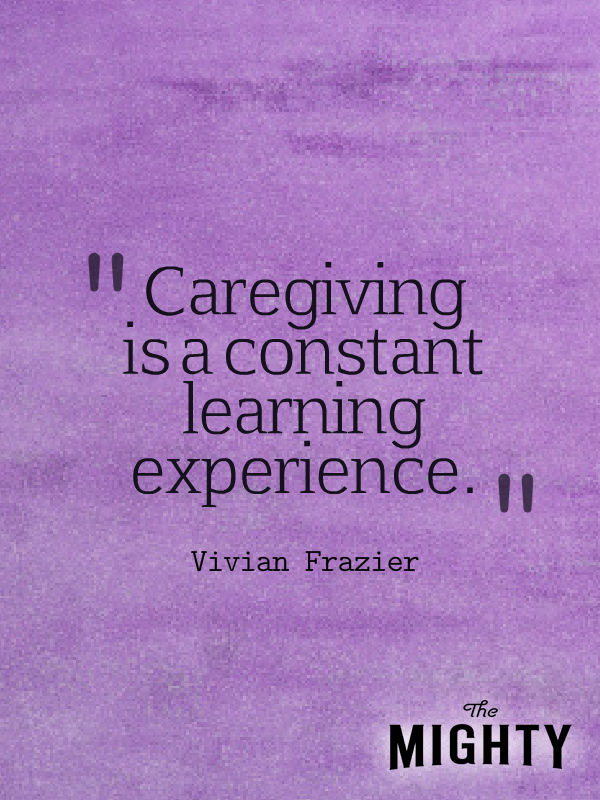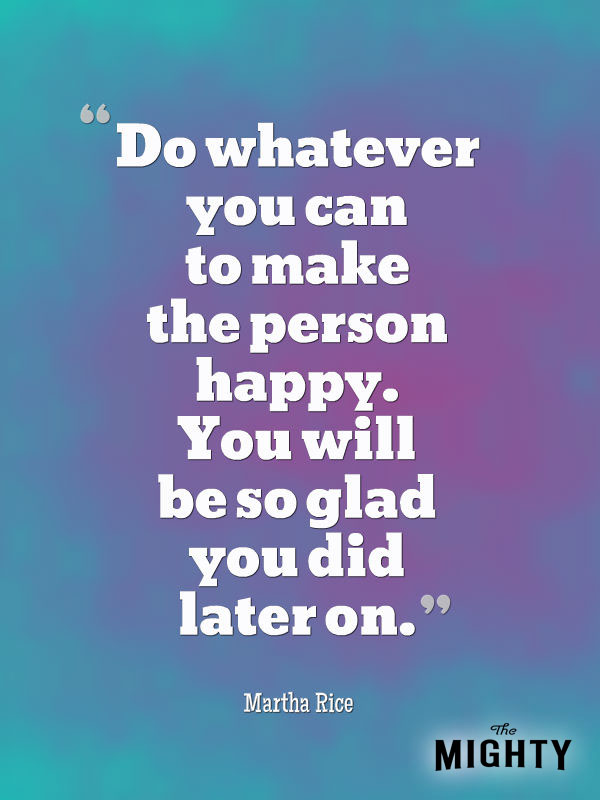Caregiving can be a complicated job. Whether you’re a loved one or a medical professional, the experience is often exhausting and frustrating. But it can also be joyful and deeply rewarding.
• The Mighty’s Caregiving Toolkit
The Mighty wanted to hear about the intricacies of being a caregiver from the people who do it every day. So we reached out to The Caregiver Space, a community of past, present and future caregivers. The group asked its readers on Facebook to share one secret about being a caregiver.
Here’s what we learned:
1. “Take time to do something nice for yourself, even if it’s something simple. A hot bath, a long walk… do whatever replenishes you. Don’t let your well run dry. You can’t be an efficient caregiver if you’re mentally and emotionally drained all the time. Learn to keep your well full with good things. It helps you deal with the ups and downs of caregiving.” — Marian M.
2. “Seek help early for both yourself and the one you are caring for.” — Lorne S.
3. “It’s OK to get upset. Do not take abuse from the patient you are caring for. It’s important to understand your patient may be having a difficult time with a disability or disease, but no one has the right to verbally or physically abuse you. When this happens, seek help and talk with the patient’s doctors.” — Jacquie H.
4. “Learning to be flexible and developing the ability to find the positive calm place within yourself even during a crisis has been so helpful. There are joyful moments everywhere if you look for them.” — Patricia V.
5. “Ask for help when you need it. Don’t expect others to read your mind.” — Sally M.
6. “Rest when you can. I have gotten really good at what I call ‘battle naps.’ Five to 15 minutes of sleep here or there will leave you feeling better since it is usually the night watch that leaves you worn out.” — Gregg M.
7. “When I get down physically, mentally and emotionally I look at my mother and see the trust and love in her eyes. In that second, I know why I do what I do.” — Brenda S.
8. “There will come a time when your loved one will be gone, and you will find comfort in the fact that you were their caregiver.” — Karen C.
9. “Keep a sense of humor. It will be dark sometimes, but it’s still humor and will help alleviate stress.” — Cheryl A.
10. “Stick with a routine and understand that when your loved one gives you a hard time they may just be frustrated due to loss of control. Carry on because deep down they know you won’t leave them.” — Erika A.
11. “Even on the worst days, I know it’s worth it. And I am a better person because of it.” — Raeschl D.
12. “Get out and do something for yourself occasionally, whether it’s lunch with a friend, a pedicure or whatever. Join a support group, even one that’s online for advice and so you know you are not alone.” — Rebecca G.
13. “It can be lonely and isolating.” — Laura L.
14. “You will discover a strength you never knew existed. Somehow you will summon the strength to love and care even when you don’t have the strength to brush your own teeth.” — Paula W.
15. “It [can allow] you to reconnect with your loved one in an unforgettable and deeply loving way.” — Cheryl M.
16. “Take every opportunity to say ‘I love you.’ It will make you both feel better.” — Carol M.
17. “Compassion is a must. I care for [my patients] the way I want someone to care for my parents one day.” — Dawn D.
18. “Always keep the person’s dignity priority number one, and everything you do or the decisions you make will be correct.” — Jerene T.
19. “The simplest thing can change a moment. Do a silly dance, blow some bubbles or point out the beauty in something.” — Krysta M.
20. “I’m a caregiver for my adult son. I’m scared all the time about the future. The wait-list for group homes is long, and I’m scared to admit I look forward to the day we get our spot for him because I think people will judge me as a bad mother. I want him in a group home and happy knowing it’s OK to live somewhere else and that his mom and dad will be OK with him living somewhere else.” — Sondra L.
21. “Make yourself known as the caregiver when interacting with any medical professionals. Politely require them to communicate with you. They may know medicine, but you know your loved one. Make friends with nurses and office workers. They can become your allies.” — Jackie M.
22. “You know what’s best for you and your loved one — don’t let anyone else tell you any different. Love them regardless.” — Traci S.
23. “It’s a great honor and privilege.” — Russ H.
24. “Caregiving is a constant learning experience. Most of us are untrained and learning as we go. Remain positive and stay on your path.” — Vivian F.
25. “It’s OK to cry.” — Cynthia S.
26. “Don’t ever turn down help, whether it’s mowing the lawn, doing laundry or picking up milk at the store. People will offer, so take them up on it.” — Susan M.
27. “Do whatever you can to make the person happy. You will be so glad you did later on.” — Martha R.
28. “Be humble, respectful and patient. Have empathy and lots of it.” — Julianne S.
29. “Trust in yourself and your gut feelings about yourself and your patient. Try to be tolerant and if you find it’s difficult, walk away for a few moments. Never give up on yourself. And most of all, love yourself. You are awesome.” — Madonna N.
For more resources for caregivers or to connect with other caregivers, visit The Caregiver Space.

